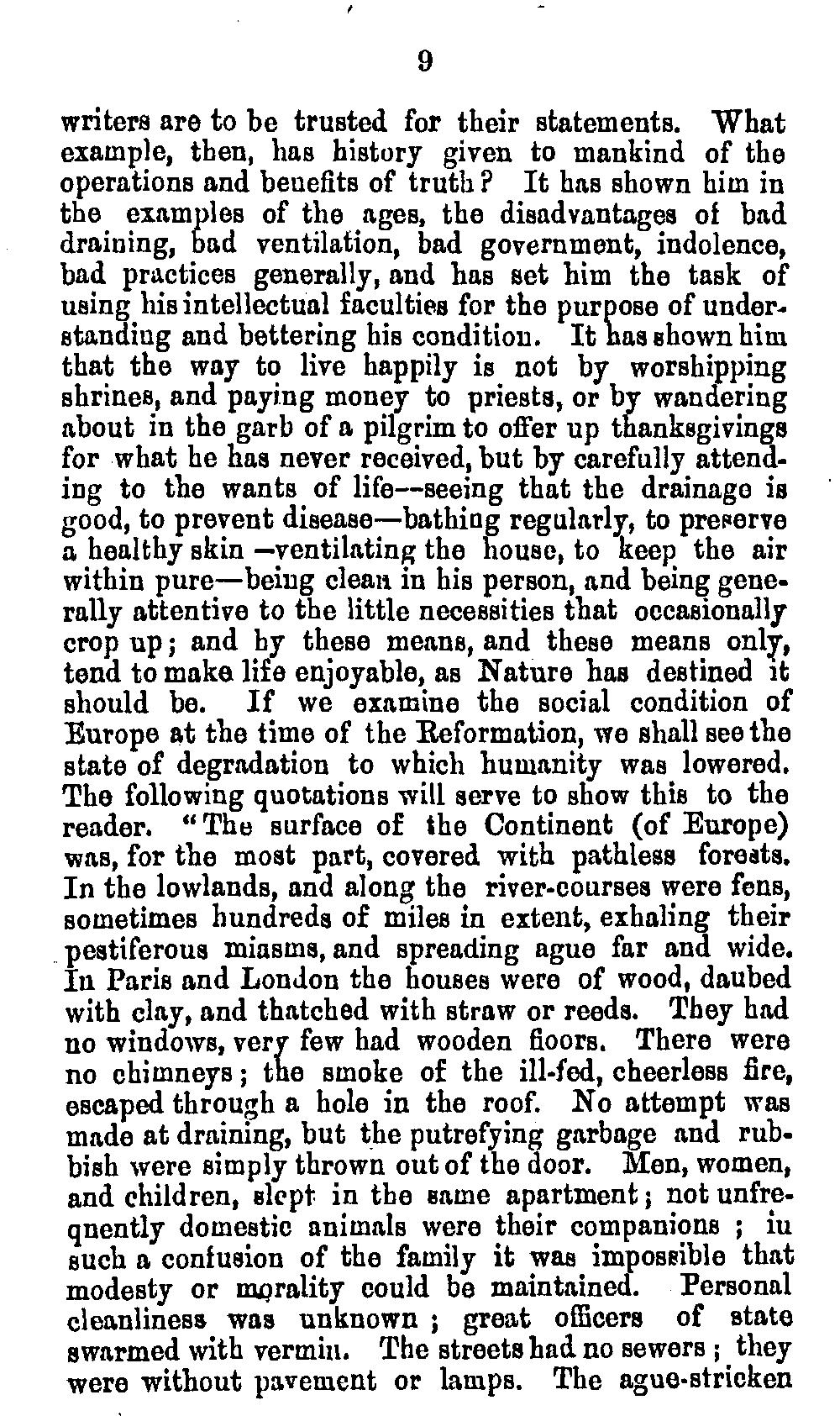9
writers are to be trusted for their statements. What example, then, has history given to mankind of the operations and benefits of truth? It has shown him in the examples of the ages, the disadvantages of bad draining, bad ventilation, bad government, indolence, bad practices generally, and has set him the task of using his intellectual faculties for the purpose of understanding and bettering his condition. It has shown him that the way to live happily is not by worshipping shrines, and paying money to priests, or by wandering about in the garb of a pilgrim to offer up thanksgivings for what he has never received, but by carefully attending to the wants of life—seeing that the drainage is good, to prevent disease—bathing regularly, to preserve a healthy skin—ventilating the house, to keep the air within pure—being clean in his person, and being generally attentive to the little necessities that occasionally crop up; and by these means, and these means only, tend to make life enjoyable, as Nature has destined it should be. If we examine the social condition of Europe at the time of the Reformation, we shall see the state of degradation to which humanity was lowered. The following quotations will serve to show this to the reader. "The surface of the Continent (of Europe) was, for the most part, covered with pathless forests. In the lowlands, and along the river-courses were fens, sometimes hundreds of miles in extent, exhaling their pestiferous miasms, and spreading ague far and wide. In Paris and London the houses were of wood, daubed with clay, and thatched with straw or reeds. They had no windows, very few had wooden floors. There were no chimneys; the smoke of the ill-fed, cheerless fire, escaped through a hole in the roof. No attempt was made at draining, but the putrefying garbage and rubbish were simply thrown out of the door. Men, women, and children, slept in the same apartment; not unfrequently domestic animals were their companions; in such a confusion of the family it was impossible that modesty or morality could be maintained. Personal cleanliness was unknown; great officers of state swarmed with vermin. The streets had no sewers; they were without pavement or lamps. The ague-stricken
